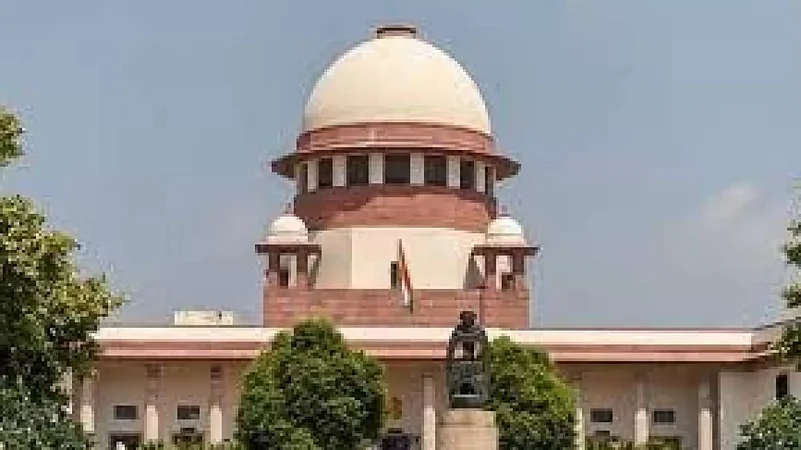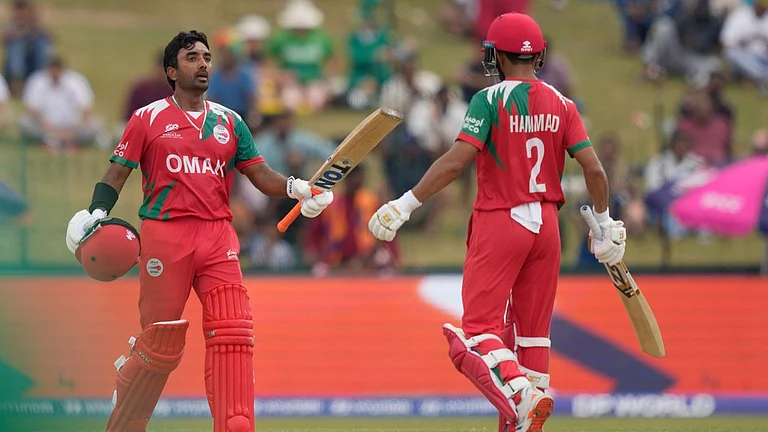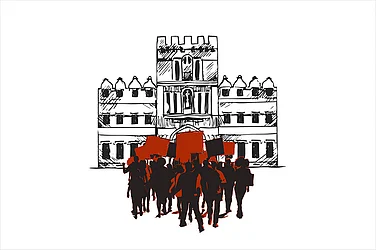The Supreme Court granted permission for the medical termination of pregnancy for a married woman who is currently 26 weeks pregnant on Monday. The petitioner, a mother of two children, presented her case before the Apex Court, explaining that she is grappling with post-partum depression and is unable to support a third child emotionally, financially, and mentally.
The petitioner also revealed to the Court that she has been undergoing psychiatric treatment for a year.
The Supreme Court bench hearing the petition comprised Justice Hima Kohli and Justice BV Nagarathna who stated that the Court does recognise the decisional autonomy of the woman in this case who has informed about her physical, psychological, mental, financial and social economic backgrounds to seek the allowance for termination of her pregnancy.
The bench further said, "This Court does recognise the right of a woman over her body and the fact that if an unwarranted pregnancy results in a child being brought into the world, a large part of the responsibility of rearing such a child will fall on the shoulder of the petitioner, which at this point she doesn't consider herself fit for."
The petitioner told the Court that she had relied on the contraceptive method known as Lactational Amenorrhea while nursing her second child. But this contraception method proved ineffective and resulted in her pregnancy, a discovery she made later than expected.
The Court noted that pregnancy during breastfeeding is a rare occurrence, and the petitioner's case is indeed exceptional. The Apex Court further noted that medical reports generally indicate that this method typically offers protection of over 95%.
In the prior session, the Court had instructed the formation of a medical board by AIIMS to evaluate the petitioner's medical condition. The Supreme Court on Monday granted the petitioner the option to participate in the proceedings virtually and inquired about her intention to proceed with the pregnancy.
The petitioner expressed her firm unwillingness to carry on with the pregnancy and petitioned the Court for permission to terminate it.
According to Live Law, the Supreme Court in its order said, "this Court has recognized the fact that one of the grounds on the basis of which pregnancy may be is when continuing with the pregnancy could impair the mental health of the woman as observed in the case Xv. Principal Secretary. The expression grave injury to her physical and mental health as used in Section 3(2) of the MTP Act is used as an overarching and in an all encompassing sense."
Continuing, "Courts have been expansively interpreting Section 5 of the MTP Act that permits termination of pregnancy beyond 20 weeks in circumstances where it is considered imperative to save the life of the woman. This Court has also recognised the fact that "mental health" has a broad connotation beyond what is ordinarily considered as mental illness in common medical parlance. The different categories carved out in Rule 3 (B) on the Medical Termination of Pregnancy Rules, 2023 show that women can seek abortion even after 20 weeks, which could be on account of a delay in recognizing their pregnancy or a change of their life circumstances to the point that the pregnancy becomes unwarranted and unviable Conceptions in Lactational Amenorrhea period has also been considered as of the circumstances by the expert committee constituted to draft the MTP Rules, and draw up categories of women who qualify for Rule 3(B)."
The Court granted the writ petition and instructed the petitioner to visit the Obstetrics and Gynaecology Department at AIIMS, New Delhi, on the morning of October 10, 2023. AIIMS is to admit the petitioner promptly for the necessary termination of her pregnancy, with subsequent medical follow-up as advised by the attending physicians.
If the fetus is found to be alive, the Court directed that appropriate incubation procedures should be followed, as recommended by medical professionals.


























